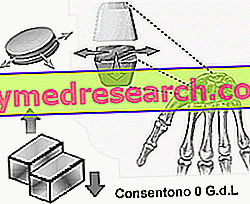Botanical Name: Cinnamomum verum JS Presl (Cinnamomum zeylanicum Nees )
Part used: cinnamon bark and essential oil (obtained from the distillation of bark or leaves)
Therapeutic properties: antimicrobial - antiseptic, eupeptic, carminative, flavor correction
Therapeutic use:
- dyspepsia, flatulence, meteorism, intestinal colic
Examples of medical specialties containing cinnamon extracts: -
NOTES: when cinnamon bark is taken for curative purposes it is essential to use defined and standardized pharmaceutical forms in active ingredients (flavonoids for bark extracts, cinnamic aldehyde and eugenol for essential oil), the only ones that let you know how many pharmacologically active molecules are being administered to the patient. Traditional herbal preparations such as infusions, juices and decoctions, do not allow to establish exactly the quantity of active ingredients administered to the patient, which increases the risk of therapeutic failure.
Cinnamon: traditional herbalist indications
Relieve minor spasmodic gastrointestinal symptoms, such as meteorism and flatulence
Indicative dosage in adults and the elderly (oral)
- If the cinnamon is taken in the form of an infusion prepared leaving in infusion 500-1000 mg of dried bark - reduced in cut herbal tea - in 150 ml of water:
- take 150 ml of infusion, up to four times a day
- If the cinnamon is taken in the form of a liquid extract (extraction ratio 1: 1; ethanol extraction solvent at 70% V / V):
- take 0.5 - 1 ml, three times a day
- If the cinnamon is taken in the form of a tincture (Drug / Solvent ratio 1: 5; ethanol extraction solvent at 70% V / V):
- take 2-4 ml per day
- If the cinnamon is taken in the form of essential oil obtained from the steam distillation of the bark:
- take 50 to 200 mg a day, divided into two or three doses. To avoid local irritation, the use of essential oil in an undiluted form is strongly discouraged.
NOTES: if symptoms persist for more than two weeks, or are aggravated while using the product, consult your doctor. As a precautionary measure, do not take during pregnancy and lactation.
Cinnamon extracts are contraindicated in case of hypersensitivity towards the active substances that characterize them.
Cinnamon has an excellent tolerability; irritation of the oral mucosa may occur if used in the form of essential oil. There have also been reports of allergic reactions in the skin and mucous membranes, as well as minor digestive disorders.
For more information on the correct use of a specific cinnamon-based product, and for the complete list of undesirable effects, see the package leaflet accompanying the product. This information must always be read carefully before starting treatment.
Examples of herbal preparations containing Cinnamon
Herbal tea to rebalance the digestive functions (gastric atony and slow digestion)
| Gentian, root | 25 g |
| Pomegranate, fruits | 13 g |
| Cardamom, fruits | 15 g |
| Cinnamon, bark | 15 g |
| Ginger, root | 18 g |
| Black pepper, fruits | 2 g |
| Cumin, fruits | 6 g |
| Caraway, fruits | 6 g |
The product is presented in sachets of two grams. Leave to infuse in boiling water, with the heat off, for 4-5 minutes a sachet of mixture. Sweeten with brown sugar or honey. It is recommended to drink after meals.



